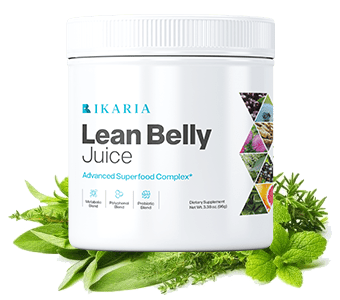
The quest for overall health leads us down many paths, but one nutrient group consistently grabs the spotlight: essential fatty acids (EFAs). These naturally occurring marvels are the building blocks of life, propelling innumerable bodily functions. The celebrated members of this group, primarily the omega-3 fatty acid and omega-6 fatty acids, are renowned for their dynamic role in maintaining a vibrant and healthy body. Yet, despite their importance, the body can’t produce them on its own. The solution? A diet rich in EFAs or supplementary options to fill any nutritional voids.
Finding foods high in essential fatty acids isn’t a treasure hunt; it’s a straightforward path to nurturing your well-being. From the brain-boosting power of omega-3 to the hormone-balancing might of omega-6, these fatty acids are your silent guardians. Suffused with benefits that ripple through every cell and system, essential fatty acids supplements and a balanced diet become more than a health choice—they are a commitment to your body’s optimal performance.
Create an image depicting the benefits of essential fatty acids for overall health. Use vibrant colors and show the different foods that are rich in these healthy fats, such as salmon, avocado, nuts, and seeds. Show a person engaging in various healthy activities, like running, cycling, or practicing yoga, to represent how essential fatty acids can support a healthy lifestyle. In the background, include images of vital organs like the brain and heart to demonstrate how these healthy fats are essential for the proper functioning of our bodies.
Key Takeaways
- EFAs are crucial for creating healthy cell membranes and supporting heart and brain health.
- Omega-3 fatty acids, including EPA and DHA, are linked to a reduction in inflammation and chronic disease risk.
- A diet rich in omega-3 and omega-6 fatty acids is essential due to the body’s inability to synthesize them.
- Foods high in essential fatty acids and quality supplements can ensure an adequate intake of these nutrients.
- Maintaining a balance between omega-3 and omega-6 fatty acid intake is fundamental for optimal health.
- The benefits of essential fatty acids extend beyond physical health to improving cognitive functions and mood stability.
Understanding Essential Fatty Acids and Their Role in the Body
Delving into the world of lipids reveals a diverse landscape of fats, each playing unique roles in maintaining our health. Critical among these are essential fatty acids, which are paramount to our body’s physiological functions.
The Fundamental Types of Fatty Acids
Sifting through the complexities of fatty acids, it’s clear that they are not all created equal. At one end of the spectrum, we have saturated fatty acids, typically found in animal fats and certain plant oils, notorious for their potential to raise LDL cholesterol and increase heart disease risk. On the flip side, the realm of the unsaturated shines with two health-supportive heroes: monounsaturated fatty acids and polyunsaturated fatty acids (PUFAs). PUFAs include the celebrated omega-3 polyunsaturated fatty acids, which boast a double bond chemistry essential for reducing inflammation and promoting heart health.
How Essential Fatty Acids Impact Cellular Health
Zooming in at the cellular level, fatty acid composition is a cornerstone of cell membrane fluidity and function. Think of each cell wrapped in a lipid bilayer where polyunsaturated fatty acids insert fluidity into the structure, allowing for dynamic cellular interactions. This fluidity is not merely a structural feature; it’s vital for healthy cell signaling and metabolism.
The acid content of these fatty acids, particularly the carboxylic acid group at one end of the molecule, is why they’re classic acids. However, not all fatty acids promote well-being. Take trans fatty acids, primarily formed during hydrogenation processes, which are implicated in several health risks and are best minimized in our diets.
The Importance of Omega-3 and Omega-6 Balance
Omega-3 and omega-6 fatty acids are both crucial, yet they must be consumed in a harmonic balance. Omega-6 fatty acids, abundant in the Western diet, are known for their roles in inflammation and blood clotting, whereas omega-3s, particularly from sources like fish oil, combat these processes. Achieving this balance may skew towards increasing omega-3 intake for many, to counteract the elevated omega-6 levels and their pro-inflammatory effects.
| Fatty Acid Type | Common Sources | Primary Functions | Recommended Intake |
|---|---|---|---|
| Saturated Fatty Acid | Beef, Butter, Palm Oil | Energy Storage, Insulation | Limit Intake |
| Monounsaturated Fatty Acid | Olive Oil, Avocado, Nuts | Heart Health, Cholesterol Management | Moderate Intake |
| Polyunsaturated Fatty Acid (Omega-6) | Vegetable Oils, Poultry, Eggs | Cell Membrane Structure, Immune Response | Consume with Balance |
| Polyunsaturated Fatty Acid (Omega-3) | Fatty Fish, Flaxseeds, Walnuts | Anti-inflammation, Brain Health, Cardiovascular Support | Increase Intake |
In the end, whether observing the stearic acid in chocolate or the omega-3s in a salmon fillet, discerning the fatty acid composition can guide healthier dietary choices. Intentionally integrating a variety of beneficial fatty acids into our diet may lead to a symphony of health benefits that harmoniously enhance our bodily functions.
Major Health Benefits of Essential Fatty Acids

A colorful illustration of various foods that are high in essential fatty acids, such as salmon, avocados, and nuts, surrounded by symbols representing the health benefits of these nutrients, such as a heart for cardiovascular health and a brain for cognitive function.
The profound impact of essential fatty acids (EFAs) extends across various facets of health and well-being. Predominantly, omega-3 fatty acids stand out for their contribution to heart health by aiding in blood pressure regulation and balancing heart disease risk factors. Notably, a diet rich in EFAs is correlated with reduced inflammation, supporting those with conditions like metabolic syndrome and asthma.
Critical for cognitive development, especially in growing children, EFAs are essential in managing ADHD in children and bolstering overall brain function. These nutrients provide a bulwark against neurodegenerative deterioration, potentially mitigating the ill effects of depression and anxiety. Furthermore, the anti-inflammatory properties of EFAs help modulate immune responses, fortifying the body’s resilience against various diseases.
Here’s a glance at the multitudinous health benefits of EFAs:
- Lowering blood pressure
- Reducing triglycerides
- Enhancing visual and cognitive development
- Lowering certain types of cancer risk reduction
- Improving nervous system function
- Regulating thyroid, adrenal, and hormone production
- Managing liver functions
- Preventing chronic diseases
| Health Aspect | Benefit of Essential Fatty Acids |
|---|---|
| Cardiovascular Health | Improves cholesterol levels, reduces hypertension |
| Inflammation | Alleviates symptoms of arthritis, reduces cytokine levels |
| Mental Health | Supports mood regulation, potentially reduces the occurrence of mood swings |
| Childhood Development | Essential for nervous system development, improves behavioral outcomes |
| Disease Prevention | Linked to a decreased risk of chronic diseases like heart disease and diabetes |
In essence, EFAs offer a comprehensive range of advantages that bolster heart health, fortify immune responses, and support both physical and mental well-being. Including EFAs in one’s diet through sources such as fatty fish, nuts, and seeds or through high-quality supplements can markedly contribute to a healthier, more balanced life.
The Impact of Essential Fatty Acids on Mental Health and Development
Amidst the myriad of nutrients vital for human health, Essential Fatty Acids (EFAs) assert a profound influence not only on physical well-being but equally on mental health and neurological function. These powerful compounds are pillars in maintaining optimal brain function and cognitive development, particularly during key growth phases such as pregnancy and early childhood. Set against a backdrop of nutritional science and burgeoning research, it becomes evident that elevating intake of these vital nutrients is critical for both mental acuity and the prevention of certain mental disorders.
Improving Cognitive Health During Pregnancy and Early Childhood
The significance of EFAs transcends the spectrum of dietary components, particularly Omega-3 fatty acids, which are instrumental in neuronal growth and neurodevelopment. The presence of docosahexaenoic acid (DHA), a component of Omega-3s, is critical during pregnancy, as it lays down the foundation for developmental milestones and enhances cognitive development in infants. The lack of these EFAs is linked to developmental delays and behavioral concerns, emphasizing the necessity of incorporating foods high in Essential Fatty Acids for expectant mothers and young children.
Essential Fatty Acids’ Effects on Mood Disorders and Mental Clarity
Beyond their structural role, EFAs, rich with anti-inflammatory effects, are emerging as potential aids in the management of mood and psychiatric disorders. For instance, the anti-inflammatory properties of eicosapentaenoic acid (EPA) contribute to mood stability and are suggested to mitigate symptoms linked to depression and anxiety. Moreover, research points toward a reduced incidence of cognitive decline, including conditions like dementia and Alzheimer’s disease, associated with adequate levels of omega-3 fatty acids. This association underlines the multifaceted applications of EFAs from warding off age-related mental deterioration to potential therapeutic roles in managing complex conditions such as bipolar disorder and schizophrenia.
FAQ
What are essential fatty acids and why are they important for overall health?
Essential fatty acids (EFAs) are polyunsaturated fats that the body cannot manufacture but are crucial for maintaining health. They are important for forming healthy cell membranes, aiding the transport and breakdown of cholesterol, and regulating blood clotting and inflammation. Their benefits for heart health, brain function, and prevention of chronic diseases underscore their importance in a balanced diet.
What is the difference between omega-3 and omega-6 fatty acids?
Omega-3 and omega-6 fatty acids are both essential polyunsaturated fats, but they have different roles and effects on the body. Omega-3 fatty acids, like EPA and DHA, are mainly found in fish and can reduce inflammation and enhance brain and heart health. On the other hand, omega-6 fatty acids, like linoleic acid, tend to promote inflammation and are abundant in many vegetable oils. A balanced intake of both is necessary for optimal health.
How do essential fatty acids impact cellular health?
Essential fatty acids are integral to the structure and function of cell membranes, ensuring fluidity and flexibility. They also play a pivotal role in the development of signaling molecules that influence inflammation, immune response, and cell growth, which are vital for maintaining cellular health.
Can essential fatty acids improve brain function and cognitive development?
Yes, essential fatty acids play a significant role in brain function and cognitive development. DHA is especially important for the development of the brain and retina, which is why it’s highly recommended for pregnant women and young children. Omega-3 fatty acids are also associated with a reduced risk of mood disorders and neurodegenerative diseases and can help with mental clarity.
What foods are high in essential fatty acids?
Foods high in omega-3 fatty acids include fatty fish like salmon, mackerel, and sardines, as well as flaxseeds, chia seeds, and walnuts. Sources of omega-6 fatty acids include vegetable oils such as soybean oil, corn oil, and safflower oil, as well as nuts and seeds. It’s important to consume a variety of these foods to maintain a balanced intake of essential fatty acids.
What are the symptoms of essential fatty acid deficiency?
Symptoms of essential fatty acid deficiency include dry and scaly skin, brittle nails and hair, excessive thirst, difficulty sleeping, and attention difficulties. In children, poor growth and developmental delays may also be indicative of EFA deficiency. It is crucial to seek medical advice if deficiency symptoms are observed.
Are essential fatty acids supplements worth taking?
Essential fatty acids supplements, such as fish oil capsules, can be beneficial especially for individuals who do not consume adequate amounts of EFAs through their diet. However, it’s always best to obtain nutrients from whole foods when possible. Before starting any supplement regimen, consulting with a healthcare provider is recommended to address individual needs.
How do essential fatty acids affect heart health?
Omega-3 essential fatty acids are known to have numerous benefits for heart health. They can lower blood pressure, reduce triglycerides, decrease the risk of arterial plaque buildup, and potentially reduce the chance of heart attacks and strokes. Including EFAs in the diet is widely recognized as a strategy for maintaining good cardiovascular health.
Can essential fatty acids reduce inflammation?
Yes, omega-3 fatty acids, such as EPA and DHA, have anti-inflammatory properties that can help to reduce the inflammation linked to many chronic diseases, such as arthritis, asthma, and inflammatory bowel disease. They work by inhibiting the production of inflammatory compounds in the body.
What is the recommended balance between omega-3 and omega-6 fatty acids?
The optimal ratio of omega-6 to omega-3 fatty acids in the diet is still a topic of research, but it is suggested that a lower ratio closer to 4:1 or even 2:1 could be beneficial for overall health, considering the typical Western diet is disproportionately high in omega-6 fatty acids. This balance can help mitigate chronic inflammation and support healthy metabolic processes.






